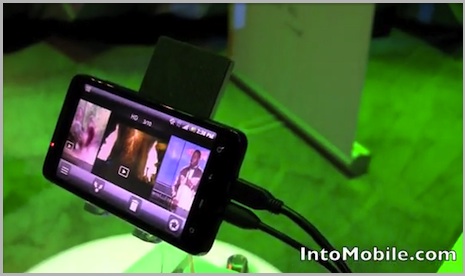-
"Mobile Set-Top Box" Era Begins on June 4th with Sprint Evo Introduction
News this week from Sprint that it will release the much-anticipated HTC Evo 4G on June 4th means that the era of the "mobile set-top box" is about to officially get underway. For those of you not familiar with the Evo, it is the first smartphone capable of working on Sprint's ultra-fast 4G wireless network. The Evo, powered by the Android 2.1 OS also sports an HDMI output (the first that I've seen), which means that you can connect the device to a widescreen HDTV and watch 720p video in gorgeous quality on a widescreen HDTV (note, Sprint plans to charge a $10 incremental 4G fee, though data transfer will be unlimited). See video below showing Evo outputting to an 85-inch plasma HDTV and also a side-by-side Engadget did with the iPhone.
The implications of the Evo - and the many similar devices that will no doubt follow it - are profound. While current set-tops can of course deliver stunning HD programming, they are anchored to the room and the designated TV. Conversely, video-capable smartphones have offered video watching on the go and ever-increasing quality. The Evo is essentially the first bridge between these 2 worlds, opening up exciting use cases and unprecedented consumer control. For example, with a set-top in your pocket and a Netflix or MLB streaming app you could conceivably transfer your experience from the mobile screen to the big screen in a snap, just by plugging in your handy HDMI cable.
It is these kinds of Android innovations that will put increasing pressure on iPhone sales (see below for more on that), and also demonstrate the rampant wireless competition in video in the coming years. Even as the government seems intent on regulating broadband ISPs, innovation abounds, ensuring highly competitive dynamics and accelerating investments. The mobile set-top box era promises a new chapter in consumer value.
What do you think? Post a comment now (no sign-in required).
Categories: Mobile Video

